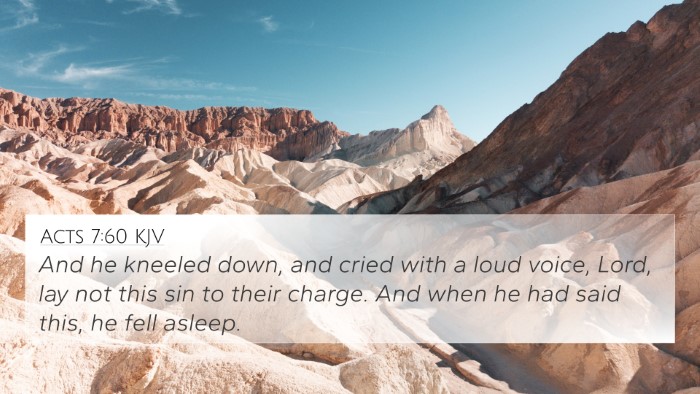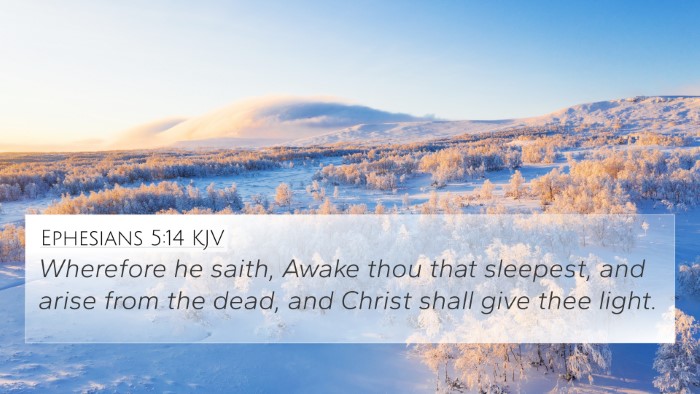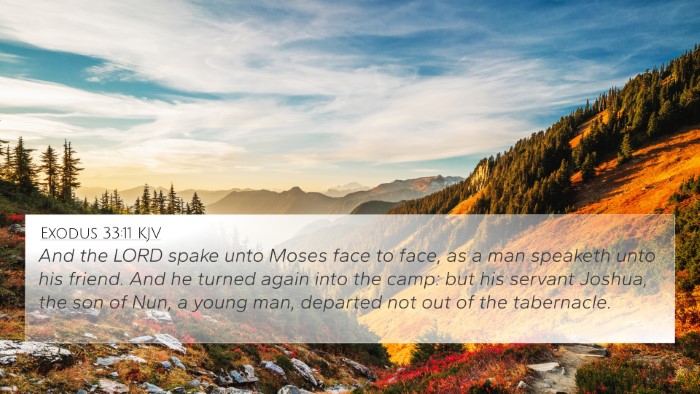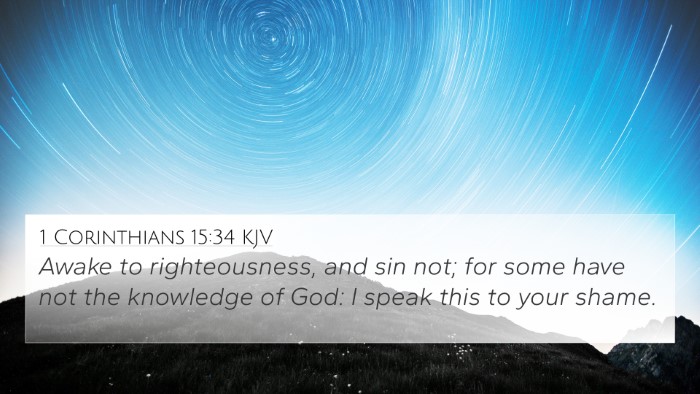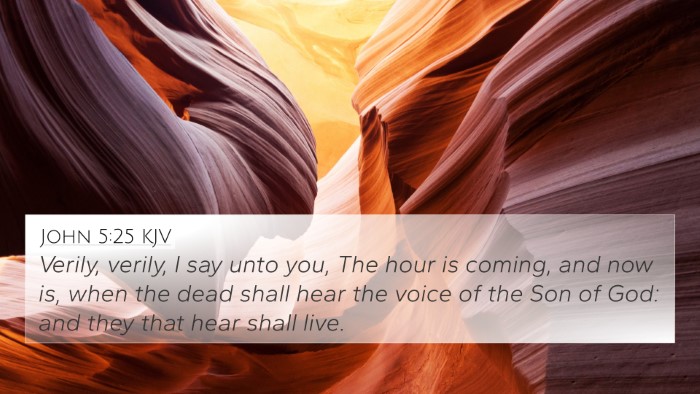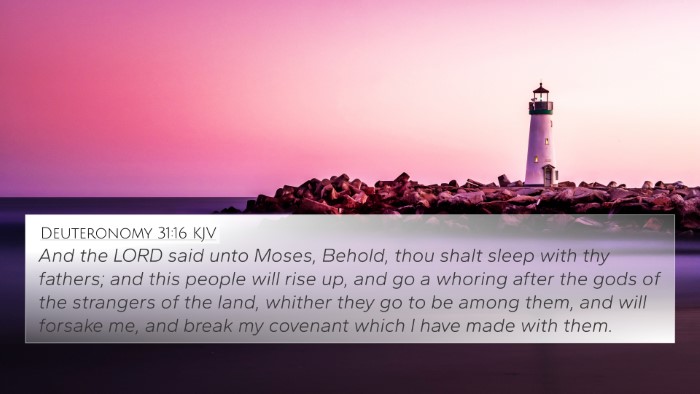Understanding John 11:11
John 11:11 reads: "These things said he: and after that he saith unto them, Our friend Lazarus sleepeth; but I go, that I may awake him out of sleep."
Summary and Meaning
The passage from John 11:11 highlights a significant moment in the ministry of Jesus Christ, where He speaks about the death of Lazarus in a metaphorical way, referring to it as sleep. This portrayal serves multiple purposes in the context of Jesus's ministry and the understanding of death among His followers.
Insights from Commentaries
- Matthew Henry:
Henry emphasizes the comforting aspect of the term "sleep," suggesting that it signifies a temporary state for believers. It indicates not an end, but a rest, thereby providing hope about life after death.
- Albert Barnes:
Barnes points out that Jesus uses "sleep" to illustrate that Lazarus would soon be awakened to life. This serves as a foreshadowing of Christ’s own resurrection and underlines His authority over life and death.
- Adam Clarke:
Clarke elaborates that this is not just an ordinary sleep; it is meant to illustrate spiritual realities. He observes how Jesus reassures His disciples by describing death in such a gentle term, aiming to reduce their anxiousness about what was to come.
The Significance of Sleep in the Context of Death
The metaphor of sleep serves as a profound illustration of how Jesus transforms our understanding of mortality. It suggests rest, peace, and an eventual awakening, which is pivotal in Christian eschatology.
Cross-References Related to John 11:11
- 1 Thessalonians 4:14: "For if we believe that Jesus died and rose again, even so them also which sleep in Jesus will God bring with him." This verse specifically refers to believers who have died, using similar language of sleeping.
- John 11:23: "Jesus saith unto her, Thy brother shall rise again." Here, the direct promise of resurrection is made, linking to the earlier metaphor of sleep.
- Matthew 9:24: "He said unto them, Give place: for the maid is not dead, but sleepeth." Jesus uses the same comfort of sleep here when discussing a young girl's death, making a connection between His miracles and His message.
- Acts 7:60: "And he kneeled down, and cried with a loud voice, Lord, lay not this sin to their charge. And when he had said this, he fell asleep." This refers to the death of Stephen, indicating the peaceful transition of believers.
- Psalm 13:3: "Consider and hear me, O Lord my God: lighten mine eyes, lest I sleep the sleep of death." This invokes the sleep metaphor in pleading for life, reflecting on the human yearning for divine intervention.
- Psalm 78:65: "Then the Lord awaked as one out of sleep, and like a mighty man that shouteth by reason of wine." This verse uses sleep to describe God's action, providing a broader scriptural correlation of sleep.
- Mark 5:39: "And when he was come in, he saith unto them, Why make ye this ado, and weep? the damsel is not dead, but sleepeth." Similar to Matthew 9, this reinforces the idea that Jesus sees death differently than humanity does.
Thematic Connections and Analysis
This verse's central theme of death as sleep opens pathways for thematic connections throughout Scripture. When conducting a comparative Bible verse analysis, one can see a broad array of scriptural parallels. The way sleep is employed in different contexts illuminates the continuity of hope in the message of Jesus.
Connecting Old and New Testament Themes
In the Old Testament, sleep often symbolizes peace and tranquility, while in the New Testament, it shifts to a metaphor for death that Christians can confidently view as temporary. This is particularly relevant in theological discussions about life after death, resurrection, and the hope found in Jesus Christ.
Tools for Cross-Referencing
Utilizing tools for Bible cross-referencing can greatly enhance understanding of passages like John 11:11. Resources like Bible concordances, Bible cross-reference guides, and comprehensive Bible cross-reference materials aid in identifying connections among verses.
Conclusion
The encapsulated teachings from John 11:11 not only offer comfort regarding death but also position Jesus as central to the promise of resurrection. By exploring related scripture and utilizing proper tools for cross-referencing Biblical texts, one can deepen their understanding of life, death, and the hopeful resurrection that Jesus promises.
Encouragement for Further Study
As readers seek to understand the connections between Bible verses, they are encouraged to delve deeper into the themes presented in the Scriptures, actively engage with the text, and discover the interconnectedness of God's word.




